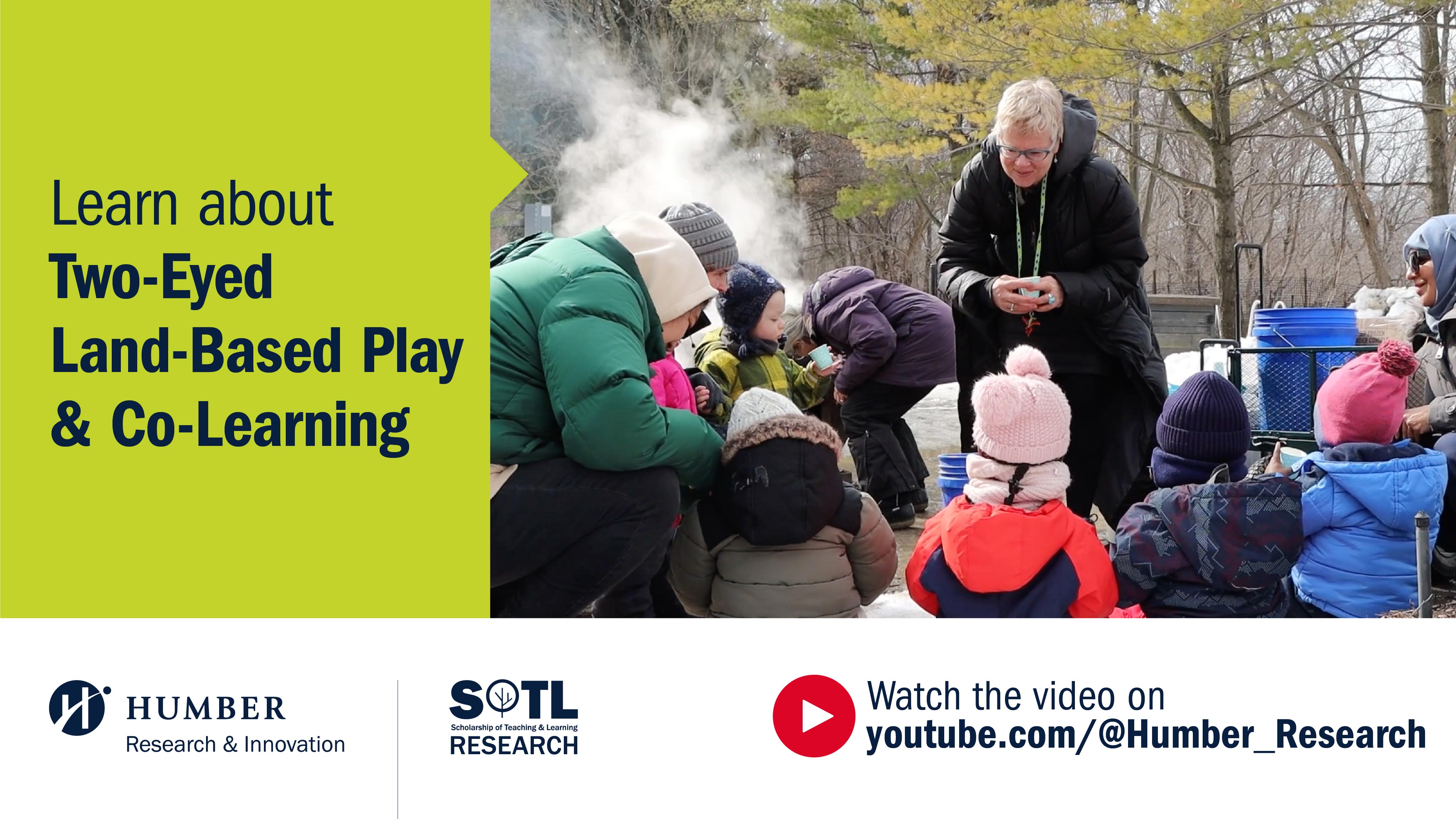In a recent research project co-funded by Humber’s Office of Research & Innovation (ORI) and the Lawson Foundation’s Outdoor Play Strategy (OPS) 2.0, Humber faculty members and researchers worked to incorporate the principles of Etuaptmumk/Two-Eyed Seeing (in the Mi'kmaq language) in Humber’s Early Childhood Education curriculum.
The project was led by Humber faculty members Louise Zimanyi and Lynn Short in collaboration with co-investigators Bora Kim, Lyndsay MacDonald, Cara Loft and Maya-Rose Simon, supported by the Maamaawisiiwin Education Research Centre. The project team explored how a new Early Childhood Education course in Two-Eyed Land-Based Play and Co-Learning (ECE 234) engages and impacts the spiritual, emotional, intellectual, and physical realities of the learner and faculty.
Watch this short video of Humber faculty members Louise Zimanyi and Lynn Short to learn more about this project.
By braiding the ways of being, relating, knowing and doing from both Indigenous and non-Indigenous worldviews, Two-Eyed Seeing honours the strengths of diverse worldviews for the benefit of all. The course takes place within the traditional and treaty lands of the Mississaugas of the Credit, known as Adoobiigok, the “Place of the Alders” outdoors in the Humber Arboretum.
The research project was awarded a Scholarship of Teaching and Learning (SoTL) grant from Humber ORI. To learn more about the SoTL research funding opportunities, check out the SoTL handbook.

